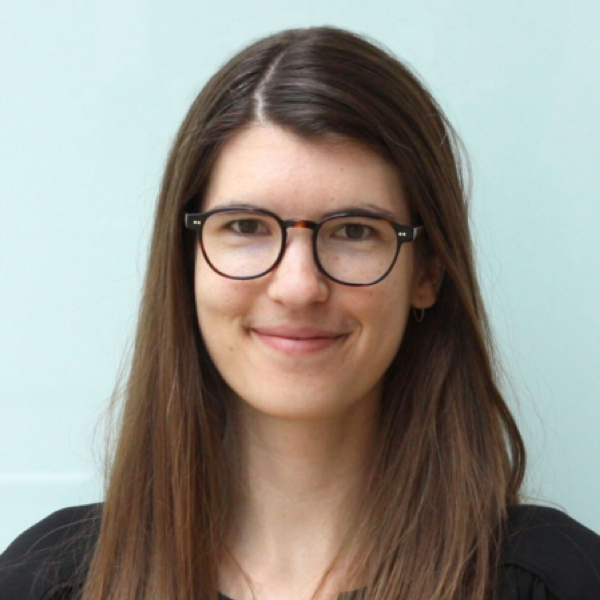Dr. Laura Lewis – Identifying Intersecting Network Dynamics Underlying Sleep and Mood in Depression

Laura Lewis, PhD
Assistant Professor of Biomedical Engineering, Boston University
2019 One Mind Bettina Bryant Rising Star Depression Research Award
Alterations in sleep are a common feature in depression. 75% of individuals with depression have trouble falling asleep or staying asleep during the night. The insomnia that sometimes accompanies depression can have a spiraling relationship where both conditions affect each other and worsen over time. For most, the lack of quality sleep can cause fatigue, irritability and heightened mood changes that further negatively impacts their life. Interestingly and counterintuitively, past research has also demonstrated that approximately 50% of individuals with depression experience rapid improvement in mood after a night of sleep deprivation. To date, the neural basis of this rapid recovery following sleep deprivation remains unknown.
With the $250,000 provided by One Mind via the 2019 One Mind Bettina Bryant Rising Star Depression Research Award, in 2020, Laura Lewis, PhD, Assistant Professor of Biomedical Engineering, Boston University launched a research project that focuses on this surprising observation. Through this study, Dr. Lewis aims to identify the effects of sleep deprivation on the brain and to understand the mechanisms by which it can improve mood and relieve symptoms in patients with depression.
Dr. Lewis believes that it may be possible to harness the rapid improvement in mood that follows sleep deprivation by developing customized treatments that modulate neural circuits. Her hypothesis is that in some forms of depression, the amygdala is slightly hyperactive and that it sends negative signals to the rest of the brain. She proposes that if you cause the structure to go into a more sleeplike state, the emotional burden that is involved with depression may be relieved.
In her first year of funding, Dr. Lewis focused on designing and piloting the paradigm for their study of patients with unipolar major depression. Understanding the dynamics in the amygdala, a brain region known to play a key role in processing negative emotional responses and mood states is of high interest. To advance this aim, Dr. Lewis and her team designed a task to test the reactivity of the amygdala to negative information, across vigilance states. She then applied the task to study participants while in an MRI scanner to investigate activity in the amygdala brain region.
In addition to her research efforts above, Dr. Lewis and her team analyzed a dataset of participants who fell asleep in the scanner, in order to understand how amygdala activity changes across sleep and wakefulness in individuals who do not have depression. From this dataset, they found a striking pattern in amygdala activity during sleep, indicating that they can detect a signature of low-vigilance state in the amygdala using their imaging techniques. This approach has thus developed a technique for understanding whether the amygdala is in a more ‘awake-like’ or ‘sleep-like’ state in a given individual. Their imaging technique lays the groundwork to now ask how this structure is affected by depression, and whether altered vigilance states in the amygdala are linked to disrupted mood.
Once the risks of COVID-19 subside, Dr. Lewis and her team plan to enroll a larger cohort of individuals with and without depression, and test for altered brain activity that can predict mood improvement after sleep deprivation in individual patients. Dr. Lewis intends to leverage the larger amount of data they collect to support conference submissions, published research and large-scale federal grant applications.
The financial support Dr. Lewis is receiving through the One Mind Rising Star Award is also accelerating a subsequent study they are designing on brain inflammation in depression. The development of the patient imaging experiment that Dr. Lewis and her team created through One Mind’s support provided the ideal clinical setting to support an add-on project in the same patient cohort funded by a subsequent foundation grant, the 1907 Trailblazer Award that provided $100,000 to investigate new aspects of brain function in the same patient cohort. This is a win-win in that the data and the knowledge gained through the add-on project will enrich the One Mind-funded project by allowing Dr. Lewis and her team to link amygdala activity and mood to brain inflammation signatures within the same individuals.
One Mind is immensely impressed with the initial work Dr. Lewis and her team is leading and are hopeful for the treatments her research may empower. We gratefully acknowledge Bettina Bryant and our donors for making this research possible. To learn more about Dr. Lewis’s research, please watch the presentation she gave at our 2019 Music Festival for Brain Health as well as the May 2020 Brain Waves interview she participated in with Patrick J. Kennedy.
